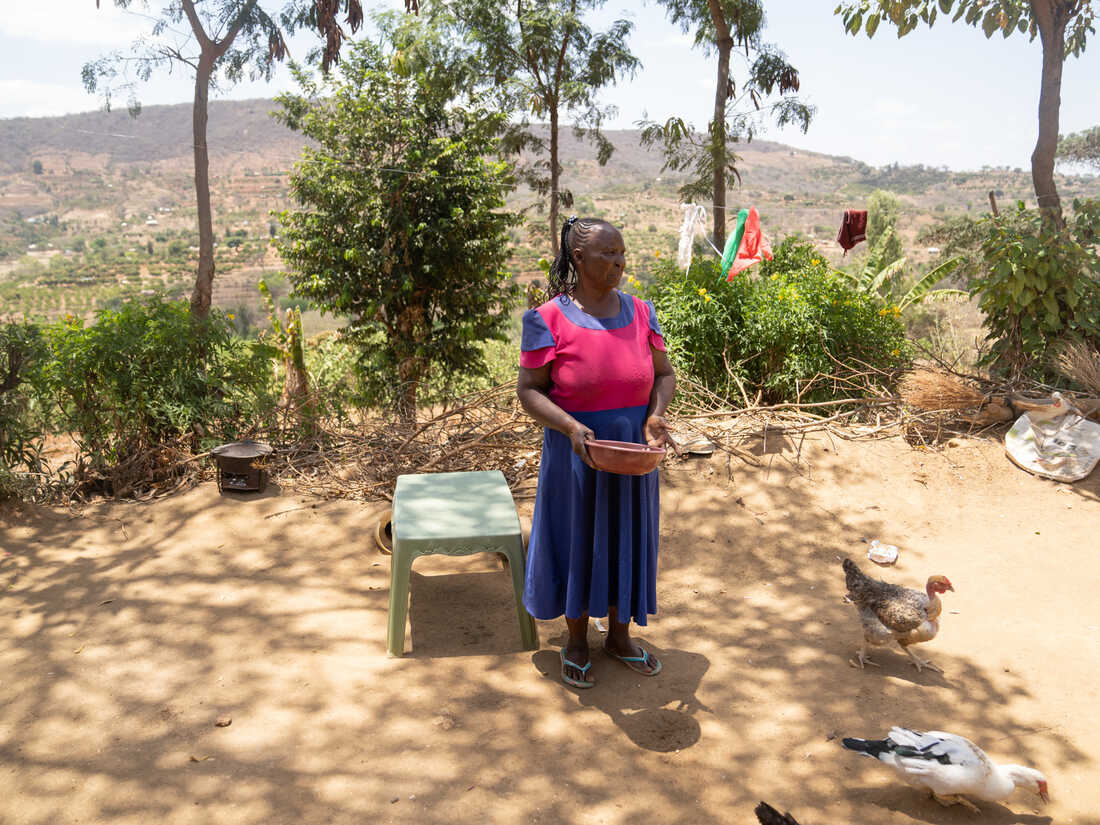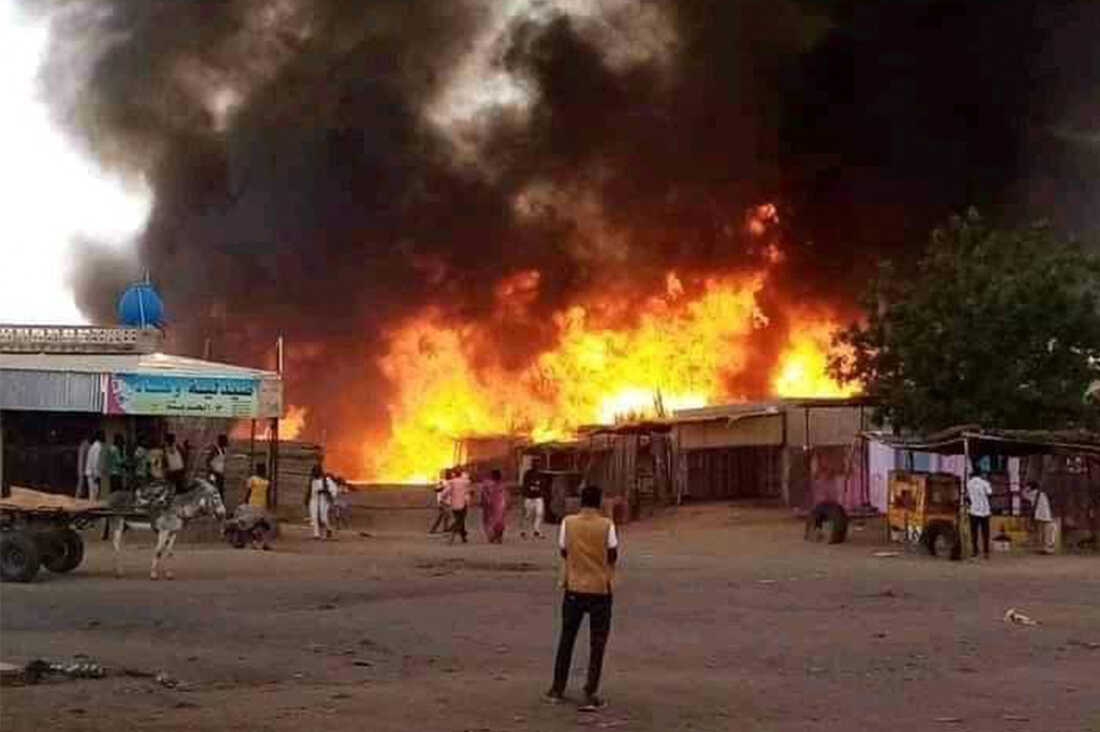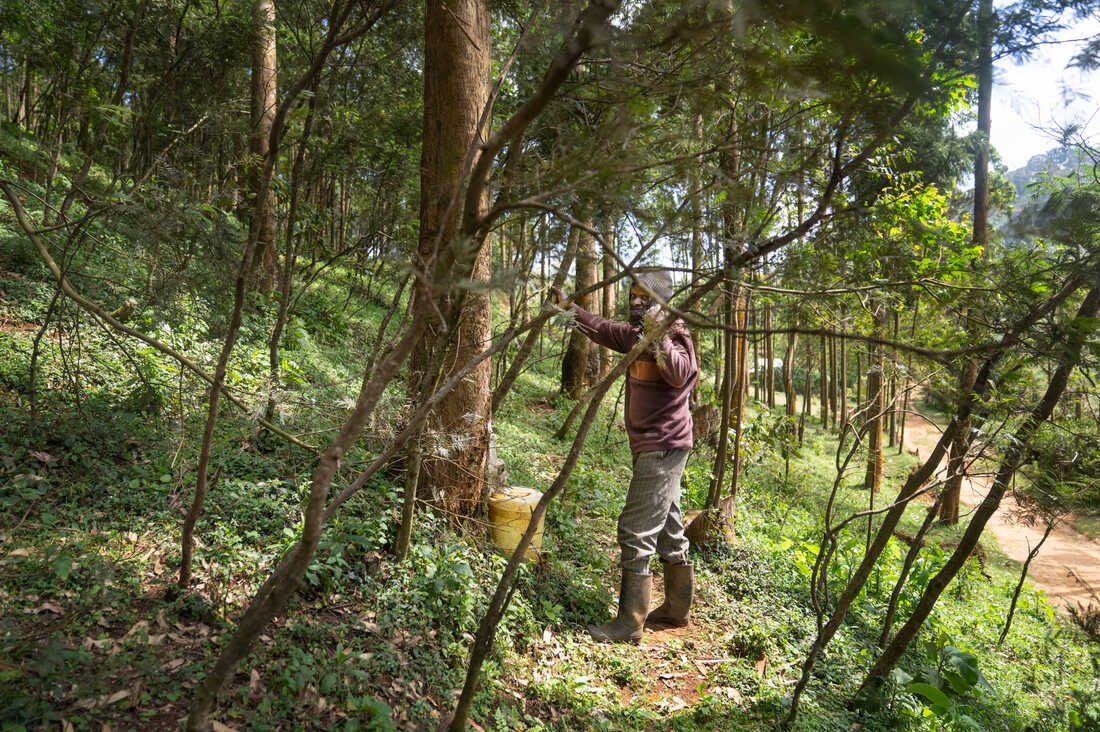Terrorist groups are expanding in Mali as peacekeepers leave, U.N. experts warn
By Michele KelemenThe United Nations is on a tight timeline to pull all of its peacekeepers out of Mali by the end of 2023. As they leave, experts warn that ISIS and other terrorist groups are expanding their control.
An aerial view shows the Temporary Operational Base of the United Nations Mission in Mali (MINUSMA) in Ogossagou village, Mopti region on November 5, 2021. - Ogossagou village was attacked two times in two years, in 2019 and 2020, by unidentified armed men, that killed in total more than 200 civilians in a village of less that 800 people. AMAURY HAUCHARD/AFP via Getty Images hide caption
toggle caption AMAURY HAUCHARD/AFP via Getty ImagesAn aerial view shows the Temporary Operational Base of the United Nations Mission in Mali (MINUSMA) in Ogossagou village, Mopti region on November 5, 2021. - Ogossagou village was attacked two times in two years, in 2019 and 2020, by unidentified armed men, that killed in total more than 200 civilians in a village of less that 800 people.
AMAURY HAUCHARD/AFP via Getty ImagesAILSA CHANG, HOST:
The United Nations is on a tight timeline to pull all of its peacekeepers out of Mali by the end of this year, at a time when ISIS and other terrorist groups expand their control over parts of the country. There's also concern that Mali's government is relying more on Russian mercenaries. NPR's Michele Kelemen reports.
MICHELE KELEMEN, BYLINE: U.N. Special Representative for Mali El Ghassim Wane has a difficult task. He has to shut down a large and expensive U.N. peacekeeping operation even as terrorist groups gain ground.
EL GHASSIM WANE: This is a very complex undertaking. The mission was built over a period of 10 years, and we have to close it in six months. And Mali, as you know, is landlocked. Infrastructure is limited, and insecurity is a reality.
KELEMEN: He says he's been coordinating the drawdown with authorities in Mali, who will now have to take the lead in protecting civilians. A recent U.N. report paints a bleak picture of the situation on the ground, though. It says the country remains in political turmoil while ISIS and other terrorist groups have nearly doubled the territory they control in just the last year. The U.N. panel of experts also says there's been widespread sexual violence by Mali's armed forces and their foreign partners. That includes Russian mercenaries. U.S. Ambassador Linda Thomas-Greenfield expressed alarm about that, saying it was a mistake for Mali's transitional government to close down the U.N. mission known as MINUSMA.
LINDA THOMAS-GREENFIELD: MINUSMA would draw limits to the ability of the international community to protect civilians from the predations of Wagner, whose activities contribute to greater insecurity in the country.
KELEMEN: Wagner is the Russian mercenary group whose leader was killed in a plane crash in Russia last week. It's been implicated in deadly attacks on civilians in Mali. Mali's transitional government, which came to power after a coup, has leaned heavily on them after the departure of French forces last year. Russia's ambassador Dmitri Polyanskiy says he knows Russia's partnership with Mali keeps Western powers up at night. Speaking through an interpreter, he accused some in the West of what he called neocolonial approaches.
DMITRI POLYANSKIY: (Through interpreter) So we should pay no heed to their colonial phantom pains. Russia, for its part, will continue to provide Mali and other interested African partners with comprehensive assistance on a bilateral, equal and mutually respectful basis.
KELEMEN: Ambassador Thomas-Greenfield is wary about Russia's influence in the region and says the people of Mali deserve peace.
THOMAS-GREENFIELD: If war were to break out, it would again unleash unspeakable, unthinkable devastation on the Malian people, who have already endured so much needless suffering.
KELEMEN: And she says it would open the doors to ISIS and other terrorist groups to spread their influence in the region. She calls that a recipe for disaster. Michele Kelemen, NPR News, the State Department.
Copyright © 2023 NPR. All rights reserved. Visit our website and pages at for further information.
NPR transcripts are created on a rush deadline by an NPR contractor. This text may not be in its final form and may be updated or revised in the future. Accuracy and availability may vary. The authoritative record of NPR’s programming is the audio record.



